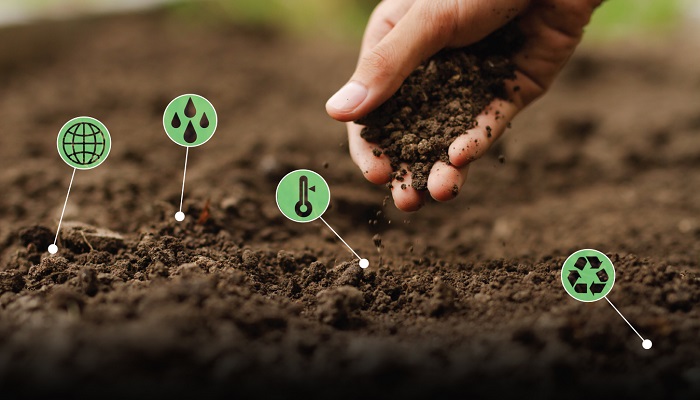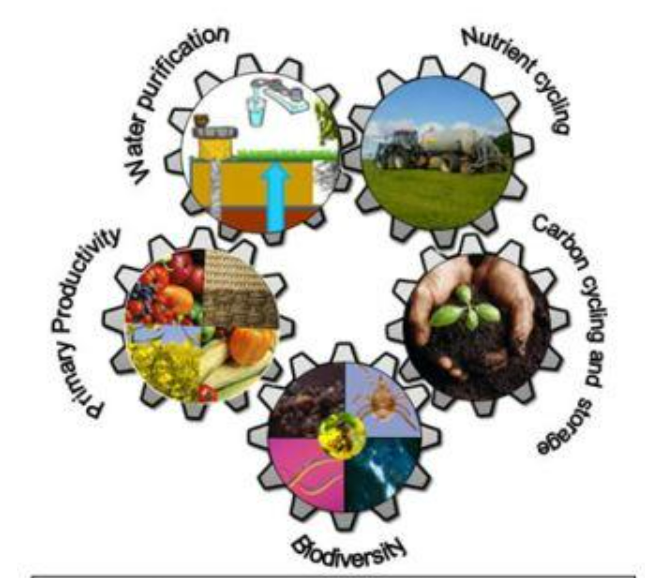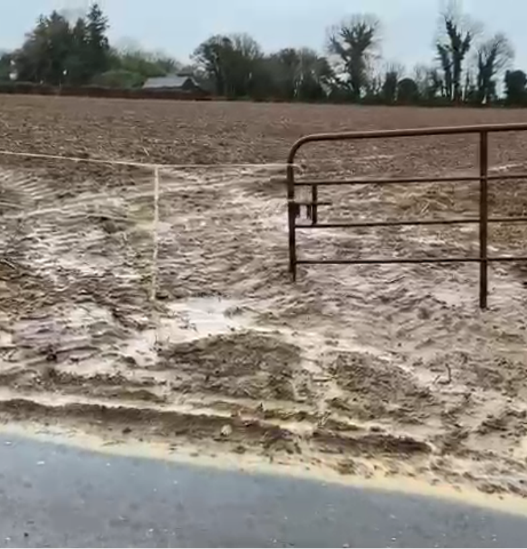05 December 2023
Why do we need a Soil Health Law?

World Soil Day is upon us again, this is an annual event held on the 5th of December where the focus is on soil health and advocating the sustainable management of soils. Cathal Somers, Teagasc ASSAP advisor tells us why we need a soil health law.
95% of our food comes from soil and it is predicted that agricultural production will have to increase by up to 60% in order to meet 2050 global food demands. Currently it is estimated that approximately 33% of soils are degraded which impacts the ability of land owners to produce food, it is believed that with the adoption of sustainable soil management practices that up to 58% more food can be produced globally (Food & Agriculture Organization of the United Nations).
The European Parliament are concerned about soil degradation and asked the commission to prepare a proposal for a soil health law in 2021. The commission have carried out this request and the proposal was published in July of 2023, since then a period of time up to November allowed for people to put in submissions to comment of the proposed law. Currently the submissions are being considered and eventually will go to a vote by both the Parliament and the Council. If enacted, then we will have the first legal protection of soils in the EU through the soil health law.
Why now?
Currently we have no law governing one of our most precious resources and with global food demands and soil degradation high on the agenda, soil is now being seen in the same light as water quality, gaseous emissions and biodiversity in regards to the importance of protecting what we have and promoting best practices. Don’t forget, food production is just one of 5 functions soil provides along with water purification, nutrient cycling, carbon cycling/storage, and biodiversity. All functions hugely important in helping farmers to grow food and regulate pollution.

Compaction & soil erosion
Farmers are very much aware of the complications adverse weather events can cause in relation grass and crop production. However this has come more to the fore in recent years with a number of droughts and heavy rainfall events causing problems in relation to forage production and the ability to harvest crops.
During the continuous rainfall this autumn as you drove the country roads, looking into fields it was clear some soils could not cope with the excessive rain. However some fields did very well, you might say it’s a matter of free draining soil verses poorly draining soil in a field’s ability to allow water to infiltrate but other factors are at play also.
Soil compaction can be an issue on Irish farms and this can lead to reduced production, ponding and loss of nutrients and soil to water through overland flow. Brown soiled water running out a field gate was a common sight this autumn in some tillage fields and grass reseeds. However it was very noticeable that fields with established cover crops and no bare soil had higher infiltration rates and reduced run off.

Improve soil health on farm
It’s important to remember that good soil management practices will improve soil function and can lead to more resilient soils that can cope better with weather such as heavy rain and droughts. Our aim in farming is to produce food and protect the environment, this can be achieved by improving soil health on farms through good management of the chemical, physical and biological aspects of soil.
Tips on how to improve your soil
Scan the QR code for tips on how to improve your soil

